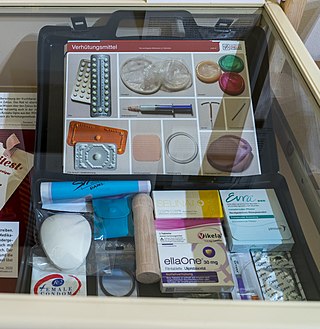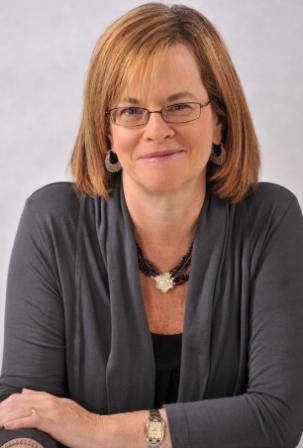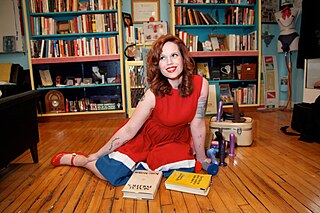Related Research Articles

Sex education, also known as sexual education, sexualityeducation or sex ed, is the instruction of issues relating to human sexuality, including human sexual anatomy, sexual activity, sexual reproduction, safe sex, and birth control, sexual health, reproductive health, emotional relations and responsibilities, age of consent, and reproductive rights. Sex education that includes all of these issues is known as comprehensive sexuality education. In contrast, abstinence-only sex education, which focuses solely on promoting sexual abstinence, is often favored in more socially conservative regions, including some parts of the United States. Sex education may be provided as part of school programs, public health campaigns, or by parents or caregivers. In some countries it is known as "Relationships and Sexual Health Education".

Title IX is a landmark federal civil rights law in the United States that was enacted as part of the Education Amendments of 1972. It prohibits sex-based discrimination in any school or any other education program that receives funding from the federal government. This is Public Law No. 92‑318, 86 Stat. 235, codified at 20 U.S.C. §§ 1681–1688.
Queer studies, sexual diversity studies, or LGBT studies is the study of topics relating to sexual orientation and gender identity usually focusing on lesbian, gay, bisexual, transgender, gender dysphoric, asexual, queer, questioning, and intersex people and cultures.

The University of North Carolina at Charlotte is a public research university in Charlotte, North Carolina. UNC Charlotte offers 24 doctoral, 66 master's, and 79 bachelor's degree programs through nine colleges. It is classified among "R2: Doctoral Universities – High research activity".

Pepper Schwartz is an American sexologist and sociologist teaching at the University of Washington in Seattle, Washington, United States. She is the author or co-author of numerous books, magazines, and website columns, and is a television personality on the subject of sexuality.
The origin of the LGBT student movement can be linked to other activist movements from the mid-20th century in the United States. The Civil Rights Movement and Second-wave feminist movement were working towards equal rights for other minority groups in the United States. Though the student movement began a few years before the Stonewall riots, the riots helped to spur the student movement to take more action in the US. Despite this, the overall view of these gay liberation student organizations received minimal attention from contemporary LGBT historians. This oversight stems from the idea that the organizations were founded with haste as a result of the riots. Others historians argue that this group gives too much credit to groups that disagree with some of the basic principles of activist LGBT organizations.
Date rape is a form of acquaintance rape and dating violence. The two phrases are often used interchangeably, but date rape specifically refers to a rape in which there has been some sort of romantic or potentially sexual relationship between the two parties. Acquaintance rape also includes rapes in which the victim and perpetrator have been in a non-romantic, non-sexual relationship, for example as co-workers or neighbors.
A naked party, also known as nude party, is a party where the participants are required to be nude. The parties have become associated with college campuses and with college-aged people; they gained prominence after naked parties were organized at Brown University and Yale University. While the roots of naked parties come from the nudism movements and campus streaking, the modern "naked party" movement appears to have its roots at Brown University in the 1980s. Attendees of naked parties often report that they stop feeling awkward after just a few minutes since everyone has disrobed before entering the party and since everyone's nudity is accepted, regardless of body type. According to reports, most naked college parties are sex-free. At Brown University, the nakedness is "more of an experiment in social interaction than a sexual experience".

The Masturbate-a-thon is an event in which participants masturbate to raise money for charity and increase the public awareness and dispel the shame and taboos that exist about this form of sexual activity. From 1998 to 2003, the Masturbate-a-thon raised around $25,000 for women's health initiatives and HIV prevention, education and treatment organizations, and has contributed to debates about safer sex and alternative safe methods of sexual expression. The event awards several honors for those who raise the most money as well as for multiple orgasms and endurance.
Comprehensive Sexuality Education (CSE) is a sex education instruction method based on a curriculum that aims to give students the holistic knowledge, attitudes, skills, and values to make healthy and informed choices in their sexual lives. The intention is that this understanding will help students understand their body and reproductive processes, engage in safer sex by reduce incidents of contracting sexually transmitted infections (STIs) such as human immunodeficiency virus (HIV) and human papillomavirus (HPV), reduce unplanned and unwanted pregnancies, as well as lowering rates of domestic and sexual violence.
Conversio Virium (CV), one of the oldest university student-run BDSM education groups in the United States, is the central Columbia University student organization that represents the college's collective population who engage in consensual BDSM and related activities. CV is a not-for-profit group that advocates strongly for freedom of sexual self-expression and is particularly concerned with creating a safe and welcoming environment for young people to explore their interest in alternative sexual practices, especially consensual sexual dominance and submission (D/s). CV participates in many of New York City's sexuality community events alongside similar organizations such as The Eulenspiegel Society.

Debra W. Haffner is co-founder and president emerita of the Religious Institute, Inc. A sexologist and ordained Unitarian Universalist minister, she was the endorsed community minister with the Unitarian Church in Westport, Connecticut. Haffner retired from the Religious Institute on April 30, 2016. She became the settled minister at the Unitarian Universalist Church in Reston, Virginia in August 2016 and served there through June 2021. Under her leadership, UUCR was named a breakthrough congregation by the UUA for her creation of the first Pride Festival in Reston. Since 2022, she has been the interim minister at the Unitarian Universalist Fellowship in Huntington, NY.

Megan Andelloux is a certified sexologist and sexuality educator, accredited through The American Association of Sexuality Educators, Counselors and Therapists (AASECT) and The American College of Sexologists (ACS).
The Center for Respect is an anti-sexual assault organization in the United States which provides prevention materials and advocacy programs for middle schools, high schools, universities, community organizations, and the United States Military. Headquartered in Milwaukee, Wisconsin, The Center for Respect addresses consent, sexual assault awareness, bystander intervention, and support for survivors of rape.

Historically speaking, lesbian, gay, bisexual, and transgender (LGBT) people have not been given equal treatment and rights by both governmental actions and society's general opinion. Much of the intolerance for LGBT individuals come from lack of education around the LGBT community, and contributes to the stigma that results in same-sex marriage being legal in few countries (31) and persistence of discrimination, such as in the workplace.
Annie Elizabeth Clark is a women's rights and civil rights activist in the United States. She was one of the lead complainants of the 2013 Title IX and Clery Act charges lodged against the University of North Carolina at Chapel Hill, claiming that the institution violated the law by the way they handled sexual assault complaints. Clark and Andrea Pino, then a fellow UNC student and also a victim of sexual assault, launched a nationwide campaign to use Title IX complaints to force U.S. universities to address sexual assault and related problems more aggressively. Clark is co-founder with Pino of End Rape on Campus, an advocacy group for victims of campus sexual assault.
Andrea Lynn Pino (born February 15, 1992) is an American women's rights and civil rights activist, author, and a public scholar on issues of global gender based violence, media framing of violence, gender and sexuality, and narratives of survivorhood. She is the queer daughter of Cuban refugees and has stated that she is a survivor of sexual assault.
Homophobia in ethnic minority communities is any negative prejudice or form of discrimination in ethnic minority communities worldwide towards people who identify as–or are perceived as being–lesbian, gay, bisexual or transgender (LGBT), known as homophobia. This may be expressed as antipathy, contempt, prejudice, aversion, hatred, irrational fear, and is sometimes related to religious beliefs. A 2006 study by the Joseph Rowntree Foundation in the UK found that while religion can have a positive function in many LGB Black and Minority Ethnic (BME) communities, it can also play a role in supporting homophobia.
Chastity clubs in the United States emerged in the 1990s for adolescents in elementary through high school. The rise of these clubs occurred alongside the rise of "purity culture" in the U.S. that promoted sexual chastity before marriage, including purity balls, sexual purity organizations, and government-funded abstinence-only sex education. Chastity clubs for adolescents came out of evangelical backlash to what they perceived as a new hyper-sexualized culture and a rise in sexual impurity. Soon, students at universities in the South began to form their own chastity clubs.
References
- ↑ "An Exploration of Love, Sex, Intimacy, And Relationships at Yale University". SexWeekAtYale.com. 2009. Archived from the original on August 31, 2009.
- ↑ Rosenbaum, Ron (January–February 2003). "Sex Week at Yale". The Atlantic . Retrieved 2014-03-02.
- ↑ "TheDartmouth.com - Yale University magazine to debut at Dartmouth".
- ↑ "The Magazine – Table of Contents". SexWeekAtYale.com. Archived from the original on October 10, 2007.
- ↑ "Sexual Health on College Campuses". www.bestplaces.net.
- ↑ Yale Daily News - Univ. earns clean bill of sexual health Archived 2008-02-15 at the Wayback Machine
- ↑ Hoffman, Kevin (January 30, 2011). "Katherine Kersten's unhealthy fixation on Sasha Grey and Yale Sex Week". City Pages . Retrieved March 27, 2019.
- ↑ Kersten, Katherine (March 6, 2010). "Yale: A great school for curious types". Star Tribune . Retrieved March 28, 2019.
- ↑ "Undergraduates for a Better Yale College" . Retrieved 2014-03-04.
- ↑ Aboutorabi, Bijan; Andino, Eduardo; Marin, Isabel (September 20, 2011). "ABOUTORABI, ANDINO AND MARIN: Change the climate, end Sex Week". Yale Daily News . Retrieved 2014-03-04.
- ↑ North, Anna (November 11, 2011). "The Real Reason Yale Banned 'Sex Week'". Jezebel . Retrieved June 10, 2019.
- ↑ Harden, Nathan (2012). Sex and God at Yale: Porn, Political Correctness, and a Good Education Gone Bad. Macmillan Publishers. ISBN 9781250013545 . Retrieved June 10, 2019.
- ↑ Rosin, Hanna (August 23, 2012). "An Innocent in the Ivy League". New York Times . Retrieved June 10, 2019.
- ↑ "Sex and God (and pretentiousness) at Yale".
- ↑ Pinto, Vanessa L. (February 9, 2012). "For Sex Week, Yale University Has to Borrow Several San Franciscans". SF Weekly . Retrieved June 10, 2019.
- ↑ "Sex Week: A Fearless Idea". Archived from the original on March 2, 2014. Retrieved 2014-03-02.
- ↑ deVise, Daniel. "Should 'Sex Week' worry college leaders?". The Washington Post . Archived from the original on March 3, 2014. Retrieved 2014-03-02.
- ↑ "Sex Week at Harvard". Archived from the original on February 24, 2012. Retrieved 2014-03-02.
{{cite web}}: CS1 maint: unfit URL (link) - ↑ Quenqua, Douglas (April 16, 2012). "On Campus, Opening Up Conversations About Sex". The New York Times . Retrieved 2014-03-02.
- ↑ "Sex Week UT" . Retrieved 2014-03-02.
- ↑ Sisk, Chas (February 28, 2014). "TN lawmakers take another shot at Sex Week". WBIR . Retrieved 2014-03-02.
- ↑ Timpf, Katherine (January 28, 2014). "Public university Sex Week to teach masturbation, when orgasms are a 'political act'". Campus Reform. Retrieved 2014-03-02.
- ↑ Cobb, David (February 23, 2014). "Anti-Sex Week bill would affect UTC, too". Chattanooga Times Free Press . Retrieved 2014-03-02.
- ↑ "RENT presented by Sex Week UTK 2014" . Retrieved 2014-03-02.
- ↑ "Sex Week UNC Charlotte". Sex Week UNC Charlotte. Retrieved 2018-02-28.
- ↑ "UNC-Charlotte, Planned Parenthood sponsor new 'Sex Week'". Campus Reform. 2018-01-12. Retrieved 2018-02-28.
- ↑ "Brown Sex Week 2013". Archived from the original on 2014-03-12. Retrieved 2014-03-02.
- 1 2 3 Brooks, Margaret (August 29, 2010). "'Sex Week' Should Arouse Caution Most of All". The Chronicle of Higher Education . Retrieved 2014-03-02.
- ↑ "Sex Week" . Retrieved 2014-03-02.
- ↑ "Our Opinion: Let's Talk About Sex (Week)" . Retrieved 2014-03-02.
- ↑ Sims, Amelia (December 2, 2013). "Symposium: Sexuality and Sex Week". Intercollegiate Review . Retrieved 2014-03-02.
- ↑ "Sex Week University Chicago" . Retrieved 2014-03-02.
- ↑ "Why is Sex Week on the Dirty Dozen List?". Morality in Media. Archived from the original on 2014-07-02. Retrieved 2014-03-02.
- ↑ "Sex Week at The Ohio State University". Sex Week at The Ohio State University. Retrieved 2019-02-19.
- ↑ "Safer Sex Week" . Retrieved 2014-03-02.
- ↑ "Oberlin Sexual Information Center Safer Sex Week 2013". Archived from the original on 2014-03-02. Retrieved 2014-03-02.
- ↑ Simon, Sarah-Jayne (February 7, 2013). "SexTalk week educates students about safe sex, abstinence and birth control". The Daily Wildcat. Retrieved 2014-03-02.
- ↑ "Safer Sex Week: TEK charge". Archived from the original on 2014-02-22. Retrieved 2014-03-02.
